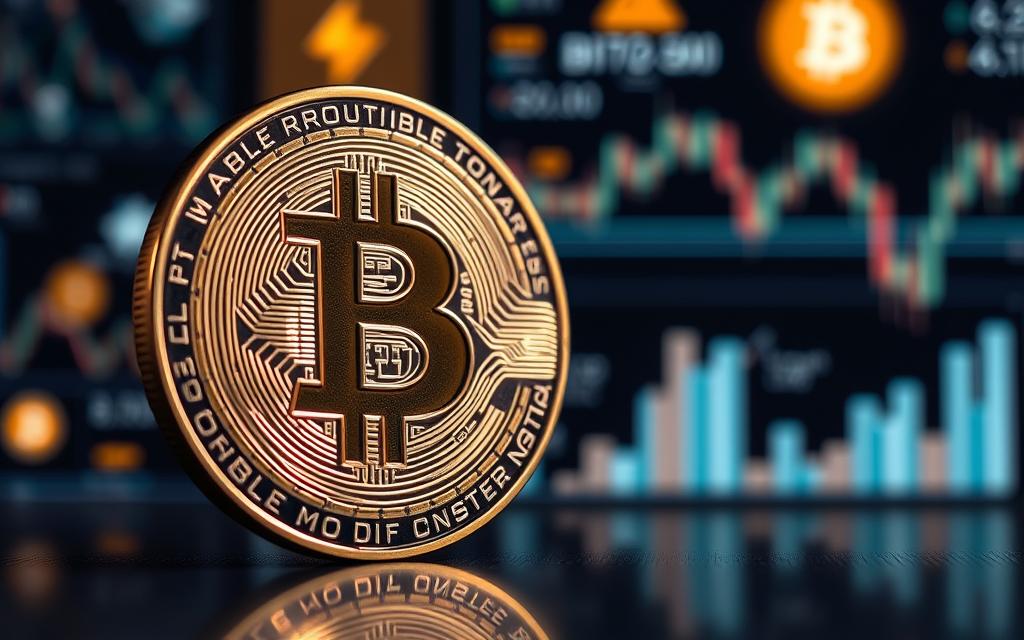Table of Contents
India is emerging as one of the world’s leading cryptocurrency markets, with active users expected to soar past 100 million this year. Bitcoin, a peer-to-peer, decentralized payment network, is at the forefront of this growth.
The cryptocurrency landscape in India is evolving rapidly, with recent regulatory developments and tax implications affecting investors. This comprehensive guide will walk you through the process of investing in Bitcoin safely and securely.
By understanding the current legal status, choosing the right exchange, setting up a secure wallet, and implementing best security practices, you’ll be well-equipped to navigate India’s growing crypto market.
Understanding Bitcoin and Its Status in India
As India embraces digital currencies, understanding Bitcoin and its legal standing is crucial for investors and users alike. Bitcoin, a decentralized digital currency, has gained significant traction globally, including in India.
What is Bitcoin?
Bitcoin is a decentralized digital currency that operates without a central bank or single administrator. Transactions are recorded on a public ledger called the blockchain, ensuring transparency and security. Bitcoin’s decentralized nature has made it popular among investors looking for alternatives to traditional assets.
Legal Status of Cryptocurrency in India
The legal status of cryptocurrency in India is complex. While cryptocurrency ownership is legal, it is not recognized as legal tender. The Reserve Bank of India (RBI) has been skeptical about cryptocurrencies, but the Supreme Court overturned the RBI’s 2018 banking ban on crypto in March 2020.
| Aspect | Status in India |
|---|---|
| Ownership and Trading | Legal, but not recognized as legal tender |
| Regulatory Framework | No specific framework, but taxation applies |
| Taxation | 30% tax on profits, 1% TDS on transactions |
Getting Started: Prerequisites for Buying Bitcoin
Buying Bitcoin in India requires some initial preparation, including verifying your identity and setting up a secure wallet. To start, you’ll need to complete the Know Your Customer (KYC) verification process, which is a mandatory step for using cryptocurrency exchanges.
Essential Documents for KYC Verification
To verify your identity, you’ll need to provide certain documents, such as a government-issued ID (Aadhaar, PAN, or passport) and proof of address. These documents are required to comply with regulatory requirements and prevent fraudulent activities.
Setting Up a Secure Bitcoin Wallet
A crypto wallet is essential for storing your Bitcoin securely. There are two main types of wallets: custodial and non-custodial. Custodial wallets are managed by a third party, such as a cryptocurrency exchange, while non-custodial wallets give you complete control over your private keys. For enhanced security, consider using a hardware wallet like Ledger or Trezor, which stores your private keys offline. Alternatively, you can use software wallets, such as mobile apps or desktop applications, but be aware that they may be more vulnerable to security breaches.
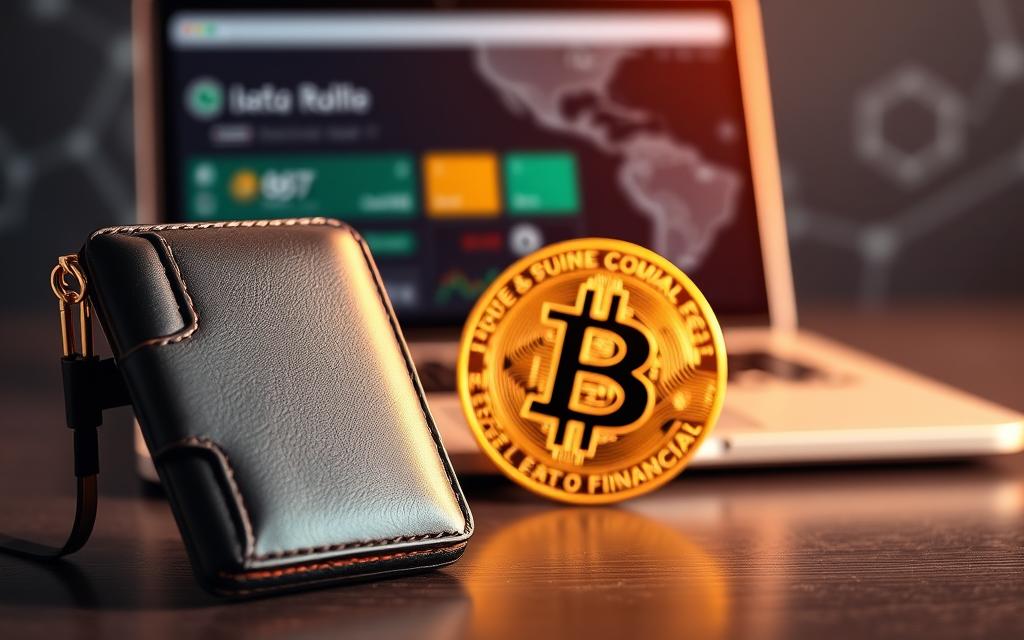
How to Buy Bitcoin in India: Step-by-Step Guide

To buy Bitcoin in India, you need to understand the step-by-step process involved. This guide will walk you through the essential steps to safely purchase Bitcoin.
Choosing a Cryptocurrency Exchange
Selecting a reliable cryptocurrency exchange is the first step in buying Bitcoin. Look for exchanges that are reputable, secure, and compliant with Indian regulations.
Creating and Verifying Your Account
After choosing an exchange, create an account and complete the KYC verification process. This typically involves providing identification and proof of address.
Depositing Funds and Making Your First Purchase
To deposit funds into your exchange account, navigate to the “Deposit” or “Add Funds” section. You can use UPI, IMPS, NEFT, or bank transfer options. After your funds are credited, you can make your first Bitcoin purchase by selecting the desired amount and completing the transaction. You can opt for a market order or a limit order, depending on your investment strategy.
By following these steps, you can buy Bitcoin in India securely and efficiently.
Popular Payment Methods for Buying Bitcoin in India
To buy Bitcoin in India, you have several payment methods at your disposal. The flexibility in payment options makes it easier for individuals to invest in cryptocurrency.
Using Credit and Debit Cards
One of the most convenient ways to purchase Bitcoin is by using credit or debit cards. Many cryptocurrency exchanges in India accept card payments, making it a straightforward process. However, it’s essential to check with your bank to see if they allow crypto transactions.
Bank Transfers and UPI Payments
Bank transfers and UPI payments are also popular methods for buying Bitcoin. Exchanges like CoinDCX and ZebPay support net banking and UPI, allowing users to transfer funds directly from their bank accounts. This method is not only secure but also cost-effective.
Alternative Payment Options
For those looking for alternative methods, peer-to-peer (P2P) marketplaces like LocalBitcoins and Paxful offer the ability to buy Bitcoin using cash or other payment options. Additionally, some exchanges support mobile payment apps like PhonePe and Google Pay. Cryptocurrency ATMs are another option, although they are limited in India.
It’s crucial to choose a payment method that suits your needs and ensures a secure transaction. Always verify the exchange’s supported payment methods and any associated fees before making a purchase.
Top Cryptocurrency Exchanges in India
As cryptocurrency adoption grows in India, top exchanges are emerging to meet demand. These platforms offer a range of services, from simple buying and selling to advanced trading features.
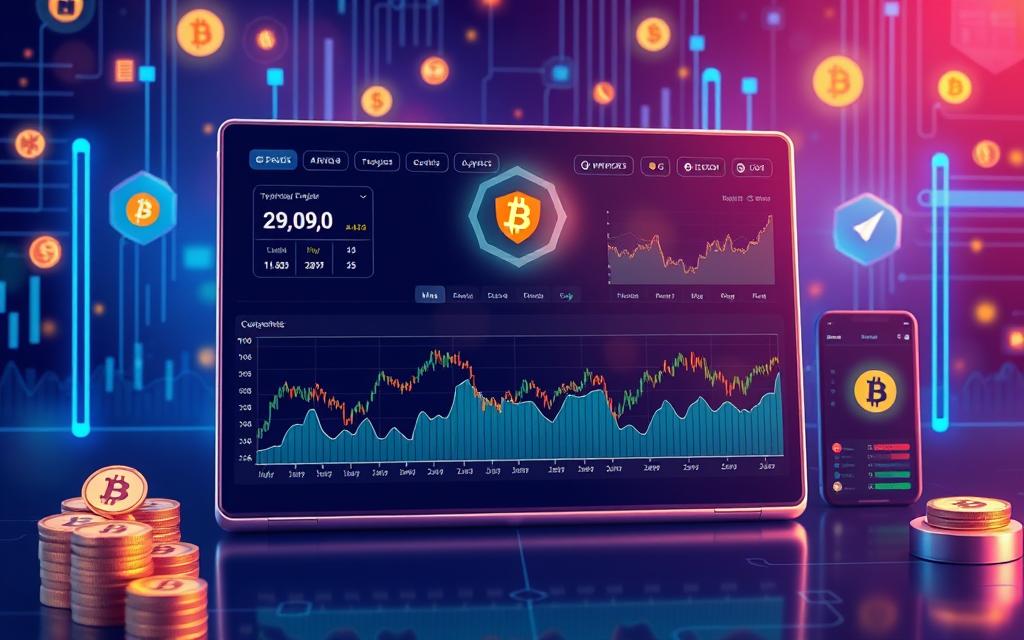
CoinDCX
CoinDCX is a prominent exchange in India, known for its user-friendly interface and wide range of cryptocurrencies. It offers advanced trading features, making it suitable for both beginners and experienced investors.
ZebPay
ZebPay is another well-established platform in India’s cryptocurrency market. It provides a secure environment for buying, selling, and trading various digital assets, with competitive fees.
CoinSwitch
CoinSwitch is a popular exchange that allows users to buy, sell, and trade a variety of cryptocurrencies. It is known for its simple and intuitive interface, making it accessible to new investors.
Mudrex
Mudrex stands out by offering access to over 650 cryptocurrencies, one of the largest selections available. It features a flat 0.25% trading fee and advanced features like 100x leverage. However, its fee structure can be complex, with additional charges for certain transactions.
Mudrex’s large selection and advanced features make it a compelling choice for experienced traders. However, users should be aware of the potential complexities in its fee structure.
Securing Your Bitcoin Investment
Protecting your Bitcoin assets is a top priority for any serious investor. The history of cryptocurrency is marked by numerous high-profile hacks and security breaches, resulting in significant financial losses for investors.
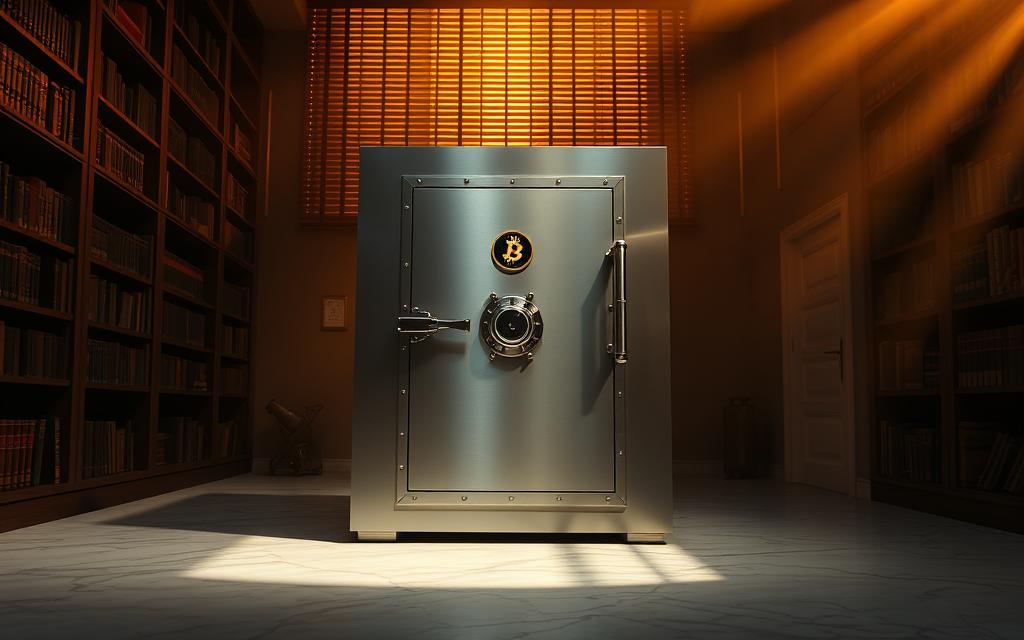
Hardware Wallets vs. Software Wallets
When it comes to securing your Bitcoin, the choice between hardware and software wallets is crucial. Hardware wallets offer enhanced security by storing your private keys offline, making them less vulnerable to hacking attempts. Software wallets, while more convenient, are more susceptible to cyber threats.
Best Security Practices for Crypto Investors
To safeguard your investments, follow these best practices:
- Never store large amounts of Bitcoin on cryptocurrency exchanges, as demonstrated by the 2024 WazirX hack where users lost access to 45% of their funds.
- Implement strong, unique passwords and enable two-factor authentication using an authenticator app.
- Secure your recovery phrases by writing them down and storing them in multiple secure locations.
- Consider using a dedicated device for cryptocurrency transactions and always verify wallet addresses before confirming transactions.
- Diversify your storage solutions based on your investment size, using multiple hardware wallets for large investments.
By adopting these security measures, you can significantly reduce the risk associated with your Bitcoin investments.
Understanding Cryptocurrency Taxation in India
As India continues to embrace cryptocurrency, understanding the tax implications becomes crucial for investors. The Indian government has established specific regulations regarding the taxation of digital assets, which are essential for taxpayers to comprehend.
Current Tax Regulations for Digital Assets
The Indian tax system has undergone significant changes with regard to cryptocurrency. As of 2024, the Income Tax Return (ITR) includes a dedicated section for Virtual Digital Assets (VDAs). Taxpayers must report all cryptocurrency transactions in their annual ITR. The filing deadline is July 31, with late filing possible until December 31, although penalties may apply.
It is mandatory for both individuals and exchanges to report all crypto transactions. The tax regulations specify that 34% of cryptocurrency profits belong to the government, while investors bear 100% of the losses. This highlights the importance of maintaining detailed records of all transactions.
Reporting Cryptocurrency Gains and Losses
Maintaining accurate records is crucial for tax reporting. Investors should keep track of purchase dates, sale dates, acquisition costs, and sale prices. Unlike traditional investments, cryptocurrency losses cannot be offset against profits or carried forward to future tax years, creating a challenging environment for active traders.
| Transaction Type | Tax Implication | Reporting Requirement |
|---|---|---|
| Cryptocurrency Gains | 34% tax on profits | Report in ITR |
| Cryptocurrency Losses | No offset against gains | Record for tax purposes |
| Late Filing | Penalties apply | File by December 31 |
Failure to report cryptocurrency income or providing inaccurate information can result in significant penalties, including up to 200% of the tax amount due for deliberate concealment.

Common Mistakes to Avoid When Buying Bitcoin
When venturing into Bitcoin investment, it’s crucial to be aware of the common pitfalls that can lead to significant financial losses. As with any investment, understanding the market and taking personal responsibility for your decisions is key.
Security Pitfalls
One of the critical areas to focus on is security. Investors should be cautious of potential security breaches and take necessary precautions. This includes using secure wallets and exchanges, enabling two-factor authentication, and being aware of phishing scams.
Investment Errors
Investment errors can be costly. Common mistakes include investing more than you can afford to lose, making emotional decisions based on market hype, and failing to diversify your investments. It’s essential to conduct thorough research and have a clear investment strategy.
| Mistake | Consequence | Prevention |
|---|---|---|
| Investing more than you can afford to lose | Significant financial loss | Set a budget and stick to it |
| Making emotional investment decisions | Buying at peaks and selling at lows | Have a clear investment strategy |
| Failing to diversify investments | Increased risk exposure | Diversify across different assets |

Advanced Bitcoin Investment Strategies for Indian Investors
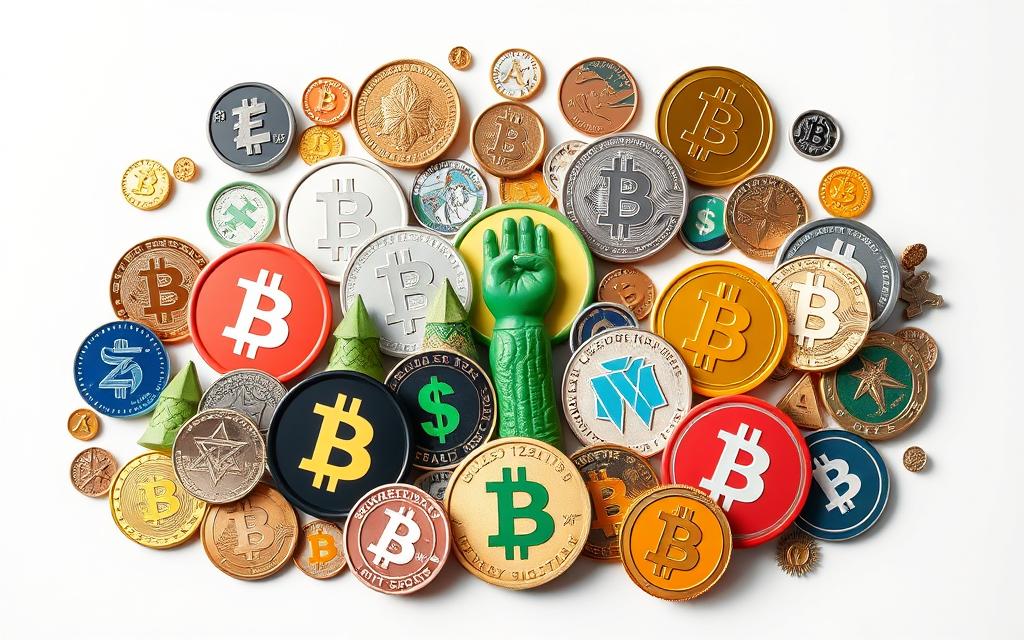
The Indian Bitcoin market is maturing, and investors are adopting more complex investment strategies. As the cryptocurrency landscape evolves, it’s essential for investors to stay informed about the best practices for managing their investments.
Dollar-Cost Averaging with Systematic Investment Plans
Dollar-cost averaging is a strategy that involves investing a fixed amount of money at regular intervals, regardless of the market’s performance. This approach helps reduce the impact of volatility and timing risks, making it a popular choice among Indian investors.
Diversification and Risk Management
Diversification is key to managing risk in cryptocurrency investments. Investors can allocate their investments across different types of digital assets, including established cryptocurrencies like Bitcoin and Ethereum, emerging altcoins, and stablecoins.
Some effective strategies for diversification include:
- Implementing position sizing to manage downside risk
- Using stablecoins like USDT, USDC, or BUSD as temporary safe havens during market volatility
- Setting clear profit-taking targets and stop-loss levels to remove emotional decision-making
- Considering tax-efficient strategies, such as holding investments for longer periods to reduce taxable events, especially with India’s 30% flat tax rate on crypto profits
By adopting these advanced strategies, Indian investors can better navigate the complexities of the Bitcoin market and make more informed investment decisions.
Conclusion: Embracing Bitcoin Safely in India’s Growing Crypto Market
India’s emergence as a leading cryptocurrency market presents both opportunities and challenges for investors. As the crypto landscape continues to evolve, understanding the legal framework, security practices, and investment strategies is crucial.
The steps outlined in this guide provide a comprehensive roadmap for safely buying Bitcoin in India. By choosing the right exchange platforms, setting up secure wallets, and implementing robust security practices, investors can navigate the market with confidence.
As the regulatory environment continues to develop, the legalization of cryptocurrency ownership and taxation framework provide a level of certainty. By following the step-by-step guide and maintaining a long-term perspective, investors in Bitcoin India can capitalize on the growing crypto market.
FAQ
What are the essential documents required for KYC verification on cryptocurrency exchanges in India?
To complete the Know Your Customer (KYC) verification process, you typically need to provide identification proof such as an Aadhaar card, PAN card, or passport, along with address proof like a utility bill or bank statement.
How do I set up a secure Bitcoin wallet?
To set up a secure Bitcoin wallet, choose a reputable provider, create a strong password, and enable two-factor authentication. Consider using a hardware wallet for added security, as it stores your private keys offline.
What are the popular payment methods for buying Bitcoin in India?
You can buy Bitcoin in India using various payment methods, including credit and debit cards, bank transfers, and UPI payments. Some exchanges also offer alternative payment options like net banking and e-wallets.
Are cryptocurrencies taxable in India?
Yes, cryptocurrencies are taxable in India. The government considers cryptocurrency gains as capital gains, which are subject to taxation. You need to report your cryptocurrency gains and losses in your tax returns.
What is the difference between a hardware wallet and a software wallet?
A hardware wallet is a physical device that stores your private keys offline, providing an additional layer of security. A software wallet, on the other hand, is a digital wallet that stores your private keys online, making it more vulnerable to hacking.
How can I ensure the security of my Bitcoin investment?
To secure your Bitcoin investment, use a reputable exchange, enable two-factor authentication, and store your assets in a secure wallet. Be cautious of phishing scams and never share your private keys with anyone.
What is dollar-cost averaging, and how can it help in Bitcoin investment?
Dollar-cost averaging is an investment strategy that involves investing a fixed amount of money at regular intervals, regardless of the market’s performance. This strategy can help reduce the impact of market volatility on your Bitcoin investment.
Can I buy Bitcoin using a credit card?
Yes, many cryptocurrency exchanges in India allow you to buy Bitcoin using a credit card. However, be aware of the fees associated with credit card transactions and the potential risks of overspending.


